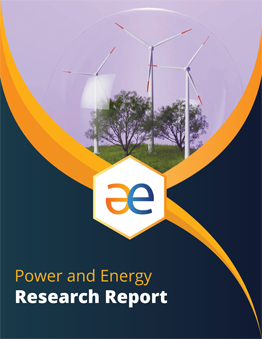Affective computing reduces the distance between machines and human emotions by a computational system which responds, recognises, expresses emotion, and develops high intelligent computing system and human machine interaction. The affective computing market is expected to grow with a high CAGR of 35.1% during the forecast period 2019-2025. Rising adoption of wearable devices and increasing advancement in enabling technologies are the key factors driving the market growth of global affective computing market. However, the high production cost of affective computing systems is hampering the growth of the market. Increasing adoption of cloud-based technology and IoT is providing huge opportunities shortly.
Research Study Objectives:
- Define, estimate, and forecast the affective computing market statistics by technology, software, hardware, end-user, and regions concerning the individual growth drivers, market trends and their contribution toward the affective computing market growth
- Provides comprehensive information regarding the key factors influencing the market growth (Drivers, Restraints & Challenges, and Opportunities)
- Estimate & forecast the market size of all the segments concerning geographies including North America, Europe, Asia Pacific (APAC), South America and the Middle East and Africa (MEA).
- The Recent competitive developments including M&A (Mergers and Acquisitions), Partnerships, and Product Innovations are provided in the Affective Computing Market Analysis report.
- Analysis and conclusions on the future affective computing market outlook.
Top-down and bottom-up approaches are used to validate the affective computing market size and are used to estimate the size of other dependent submarkets. Key players in the market are identified through various secondary sources; databases including Bloomberg Businessweek, Hoovers, Factiva, journals and associations and the market revenues are estimated and are thoroughly validated through primary and secondary research. Secondary research involves the study of annual and financial reports of top players in
the market, whereas primary research includes extensive interviews with the KoL’s such as CEOs, directors, board members, VP’s, sales managers, engineers, marketing executives, technicians, account managers, investors, strategic decision makers and others. The affective computing market shares and breakdowns are determined using secondary sources and are verified by the primary sources. All possible parameters/factors that are affecting the affective computing market demand are covered in the research study are verified through primary research, analysed and interpreted to get the final qualitative and quantitative data. This data is collected and added with detailed analysis from Envision Inteligence and presented in this report.
The scope of the Report
The affective computing market segmentation is as follows:
By Software
- Speech Recognition
- Gesture Recognition
- Facial Feature Extraction
- Analytics Software
- Enterprise Software
By Hardware
- Sensors
- Cameras
- Storage Devices and Processors
- Others
By Technology
By End-user
- Academia and Research
- Class Monitoring and Student Engagement
- Media and Entertainment
- Video Analytics
- Gaming
- Government and Defense
- Law Enforcement Agencies
- Healthcare and Life Sciences
- Telemedicine, Tele Psychiatry, and Doctor on Demand
- Autism Spectrum Conditions (ASC)
- IT and Telecom
- Software Development Kits (SDK)
- Retail and E-Commerce
- Product Surveying, Customer Engagement, and User Experience Review
- Automotive
- Infotainment Systems and Console Maneuvering
- Passive Wireless Heart-Rate Sensor
- Driver Awareness
- Banking, Financial Services, and Insurance
- Human and System Interaction
- Offering Evidence-Based Decision-Making Options
- Other
Geographical Analysis:
Affective Computing Market is segmented by geography into North America, South America, Europe, APAC and Middle East & Africa. U.S., Canada, Mexico and Costa Rica are analysed under North American region which is usually turning as the hotspot in the market. The South American region is further segregated into Brazil, Argentina, Chile, Columbia and some other emerging economies. In Europe, the market is extensively examined by covering U.K., Germany, France, Italy, Spain, Netherlands, Poland, Switzerland and some other promising economies. APAC is further categorised by countries into China, India, Japan, South Korea, Australia
& New Zealand, Malaysia, Singapore and many other emerging nations. In the Middle East & African region, Saudi Arabia, UAE, Iran, Iraq, Qatar, South Africa, Algeria, Morocco, Nigeria and so on countries are evaluated to understand the market growth lucidly.
Customization Options:
With the given research report, Envision Inteligence offers customisations as per the client’s specific requirements. The following customisation options offered for the affective computing market include:
- Scope Revision
- Geographic Analysis
- Company Profiles
- Historical Data & Forecasting
- Key Contact Persons in companies
Global Affective Computing Market Research Report Includes:
- An executive summary condensing the whole report such that essential authority can rapidly twist up doubtlessly acquainted with brief overview and conclusion.
- To have a complete market analysis through industry value chain analysis, Porter’s Five Force Model, PESTLE, SWOT analysis, and Y-o-Y analysis.
- Regional and global diversity is analysed with the major countries and the unions. Scrutinizing the revenue generation on Year-On-Year
- Identifying DROC in the current market and their impact on altering market dynamics.
- Competitive landscape analysis to identify the merger and acquisition which will have a comparative financial study with significant competitors.
- Expertise investment opportunities by an analyst to the individual and organisation to have a better foothold in the market.
- Identify the latest developments, market shares and strategies that are employed by the significant affective computing market players, such as
- Apple, Inc.
- Google LLC
- IBM Corporation
- Microsoft Corporation
- Qualcomm Inc.
Along with these companies, many other companies are considered in the report while analysing the global affective computing competitive strategies and environment. These companies held substantial share-owning to the nature of the industry whereas, the rest of the market shares are marginal chunks to regional and local level manufacturers. Other players also have considerable presence owing to its robust brand image, geographical reach and stable customer base.


